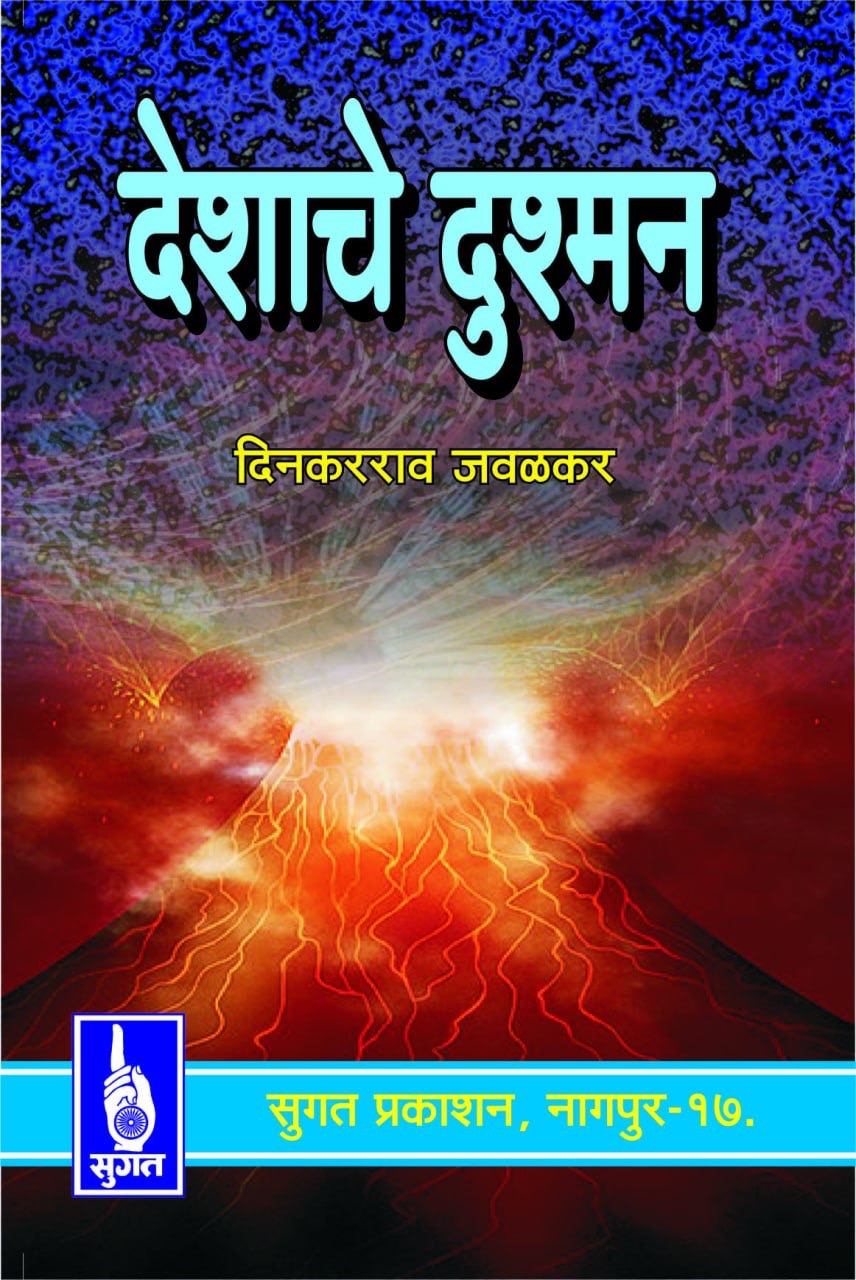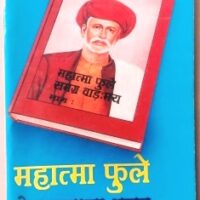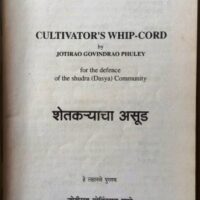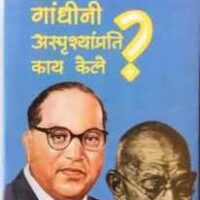Mahatma Jyotiba Fule Likhit “Bramanache Kasab”
“Mahatma Jyotiba Fule Likhit Brahmananche Kasab” is a Marathi book written by Mahatma Jyotiba Fule. The book is a collection of articles and essays that highlight the social and economic exploitation faced by the lower castes in India, particularly the Brahmin community.
Fule, a social reformer and activist, was a strong advocate of social equality and worked tirelessly to eradicate the caste system in India. The book is a powerful testament to his vision and ideals, and provides a comprehensive analysis of the various forms of discrimination and oppression faced by the lower castes.
Through his writings, Fule challenged the traditional social hierarchy and exposed the hypocrisy and injustice of the Brahminical order. He argued that the caste system was a tool of oppression, designed to perpetuate the dominance of the upper castes over the lower castes.
The book is a seminal work in Marathi literature and has had a profound impact on the social and political landscape of India. It continues to be an important resource for scholars, activists, and anyone interested in the history and culture of India.
In “Mahatma Jyotiba Fule Likhit Brahmananche Kasab,” Fule presents a powerful critique of the caste system, and offers a vision of a more just and equitable society, based on the principles of equality, freedom, and social justice.
Description
About Jyotiba Phule.
Jyotiba Phule, also known as Jotirao Phule, was an Indian social reformer and a leading figure in the movement for social justice and equality in India during the 19th century. He was a pioneer of the social reform movement in Maharashtra and played a key role in the struggle against caste discrimination, untouchability, and the oppression of women. In this essay, we will explore Jyotiba Phule’s life, work, and contributions to the Indian society.
Early Life and Education
Jyotiba Phule was born in 1827 in Satara district of Maharashtra to a family of Mali caste, which was traditionally considered a lower caste. Despite facing discrimination and social stigma, he managed to receive a formal education, which was rare for people of his caste at that time. He was educated at a local Scottish Mission school and later at Elphinstone College in Mumbai.
Phule’s education gave him a broad perspective on social issues, and he became acutely aware of the social and economic disparities that existed in Indian society. He was deeply influenced by the teachings of social reformers like Raja Ram Mohan Roy and the Enlightenment thinkers of Europe, who advocated for human rights, rationalism, and social justice.
Social Reforms and Activism
Jyotiba Phule dedicated his life to the cause of social justice and equality. He was a strong critic of the caste system, which he believed was a tool of oppression and social control. He argued that the caste system was not only a social evil but also a barrier to progress and development. He called for the abolition of caste-based discrimination and the establishment of a society based on merit and equal opportunities.
Phule’s activism was not limited to the issue of caste discrimination but also included the struggle against the oppression of women. He was one of the first Indian social reformers to speak out against the practice of sati, the forced immolation of widows on their husband’s funeral pyres. He also advocated for women’s education and empowerment, which he believed was essential for the development of society.
Phule’s most significant contribution to the Indian social reform movement was the establishment of the Satyashodhak Samaj in 1873. The Satyashodhak Samaj was a social organization that aimed to promote the ideals of social justice, equality, and rationalism. The organization provided a platform for people of all castes and religions to come together and work towards the goal of social reform. It also played a key role in promoting education and awareness among the masses, especially women and the oppressed sections of society.
Phule’s writings and speeches were instrumental in creating awareness and building a mass movement for social justice in Maharashtra. He wrote several books and pamphlets, including “Gulamgiri” and “Sarvajanik Satyadharma,” which were scathing critiques of the caste system and Brahminical oppression. His works were widely read and had a profound impact on the Indian society, inspiring generations of social reformers and activists.
Legacy
Jyotiba Phule’s contributions to the Indian society were significant and far-reaching. He played a key role in the struggle against caste discrimination and the oppression of women, which were major social evils in India at that time. His ideas and ideals continue to inspire social reformers and activists to this day.
The legacy of Jyotiba Phule can be seen in the various social and political movements that have emerged in India in the 20th century, including the Dalit movement and the feminist movement. His ideas have also had a significant impact on the Indian Constitution, which is based on the principles of social justice and equality.
Only logged in customers who have purchased this product may leave a review.















Reviews
There are no reviews yet.